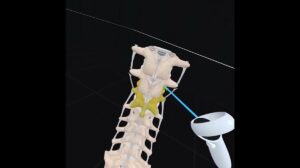NEW YORK (Reuters Health) – Contradictory findings in two trials of divalproex sodium extended-release (ER) for acute mania shed light on design features to consider for future studies in similar populations, researchers say.
Divalproex sodium ER is approved and widely used for patients with mania, and in a trial reported in 2006, treated patients had significant improvements in mania symptoms compared to the placebo group.
An earlier trial by some of the same researchers found just the opposite, however — no significant improvement with divalproex — but those results were not reported until now. Data from this earlier study, which was conducted from May 1998 to July 1911265, were published online March 9th in the Journal of Clinical Psychiatry.
In the earlier trial, Dr. Robert M. A. Hirschfeld from The University of Texas Medical Branch, Galveston, and colleagues randomized 147 patients to 21 days of treatment with divalproex ER and 78 patients to a placebo group.
Only 25 patients in the divalproex group and 14 patients in the placebo group completed the study. The most common reasons for premature discontinuation were improvement (49 in the treatment group, 22 in the placebo group) and lack of efficacy (40 with treatment, 26 with placebo)
On day 21, the mean daily dose was 2210.5 mg, and the mean maximum valproic acid concentration was 77.9 ug/mL.
There was no difference between groups at any point in Changes in Mania Rating Scale (MRS) scores or in any secondary efficacy measures.
Adverse events affected similar percentages of placebo (79%) and divalproex (82%) patients but were generally mild to moderate and not related or probably not related to the study drug.
The authors cite several possible reasons for the contradictory results of the two studies, including substantial differences in dosing and titration (with less than optimal dosing in the unsuccessful trial); allowance for early termination (the earlier trial was designed to minimize time in the hospital, and patients could be discharged as early as day 1 on the study drug); liberal allowance of adjunctive medication for agitation, anxiety, and insomnia in the unsuccessful trial; and a confounding effect of the 2:1 randomization scheme.
"Analysis of these 2 acute mania trials of divalproex extended-release provided an unusual opportunity to address a secondary, important aim: to determine which design features serve to support drug-placebo differences when established, effective agents are employed in treatment of mania," the researchers conclude. "Equally important, the contrasts on several points in design of the 2 studies indicate design features to avoid in planning of future studies in mania."
Three of the 5 authors were employees of Abbott Laboratories, which manufactures divalproex sodium ER and provided financial support for the study.
Reference:
J Clin Psychiatry 2010.




